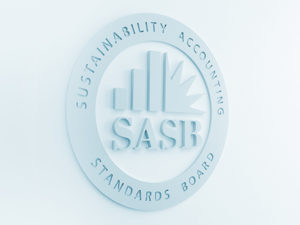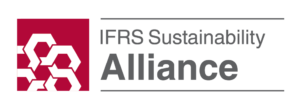This post first appeared on The Huffington Post:

Jean Rogers, chair of the SASB Standards Board
When it comes to influence, how much you have is less important than how you use it.
That’s what occurred to me this week, when I was informed I had been named one of Accounting Today’s Top 100 Most Influential People in Accounting. Naturally, I am grateful for and humbled by this honour, but I also recognise that my work to promote sustainability accounting relies on the efforts of so many others. At the Sustainability Accounting Standards Board (SASB), our due process is designed to produce outcomes that reflect the varied demands of an evolving market. In that respect, the recognition I receive is owed equally to the thousands of market participants—corporate professionals, investors, accountants, securities lawyers, and others—who have participated in our efforts to shape the future of the accounting practice.
In that light, I choose to use my influence to encourage those market actors to continue using their own.
Why? Because as material sustainability related events literally storm all around us, there may be no more appropriate time to reemphasize the need for a market standard to guide the disclosure of corporate sustainability performance. It has become increasingly clear that markets struggle in the absence of comparable data on how companies manage business-critical environmental, social, and governance issues. Risks and opportunities are overlooked, price discovery is less efficient, and financial capital is not optimally allocated.
The good news is this: Everyone can influence the capital markets as a force for good.
- Investors can call for corporate action. Investor demand is perhaps the single most important driver of improved sustainability disclosure, and both asset owners and managers need to ensure their voices are being heard. They can do so through their direct engagement efforts with portfolio companies, in earnings calls, via their buy/sell decisions, and with their proxy voting. They can also make public statements, like the one issued recently by Vanguard, one of the world’s largest investment management companies, which called on public companies to “embrace the disclosure of sustainability risks that bear on a company’s long-term value creation prospects” using a suitable framework like the SASB standards.
- Corporate professionals can act. From board members and C-suite executives to internal auditors and investor relations teams, corporate professionals can work toward integrating material sustainability considerations into core business strategy and function. No matter where their organisation lies on the continuum of progress, they can take steps forward, raising these factors for consideration in a variety of operational areas, including strategic planning, enterprise risk management, systems of internal control, and in board disclosure and audit committees, ensuring that they are well positioned to manage sustainability risks and optimise the long-term value of the company. Corporate professionals can also exercise their influence by engaging with SASB to help shape the standards.
- Securities lawyers can review the facts in a new light. Traditionally, many securities lawyers have tended to dismiss sustainability related matters as immaterial for the purposes of disclosure. However, a closer look at industry-specific impacts may change that view. For example, rather than thinking about “climate change” writ large, food and beverage companies might consider climate impacts on their supply chain, while utilities might scrutinize their network resiliency; real estate portfolios the value of their assets in the path of extreme weather events. An industry lens can reveal whether sustainability issues have the potential to affect financial performance—applying same legal standard for materiality to factors that securities lawyers may be less accustomed to evaluating.
- Accountants and consultants can lend their expertise. As companies move down the path toward improved sustainability disclosure, they will require the help of trusted advisors. Accountants and consultants can assist in the design, implementation, and maintenance of systems of internal control over sustainability information, helping clients better achieve not only their reporting objectives but also those related to operations and compliance. After all, it is by minimising risk and seizing opportunity that value is created—not simply by reporting.
As these and other market participants work to move our markets forward, it’s important to remind others that sustainability efforts need not represent corporate largesse. Indeed, research shows that material sustainability factors affect both risk and return. For example, on the return side, a Harvard Business School study found that firms performing well on material sustainability factors while ignoring immaterial sustainability factors (based on SASB’s framework) generated market outperformance of 6 percent, in addition to enjoying enhanced accounting returns. Meanwhile, in terms of risk, Bank of America Merrill Lynch (BAML) research found sustainability factors to be strong indicators of future volatility, earnings risk, price declines and bankruptcies.
As the old saying goes, what gets measured gets managed. Accounting for material sustainability factors will not only improve the outlook for companies and stabilised markets, it may just have a positive impact on society and the environment, as well. Now that’s influence.




